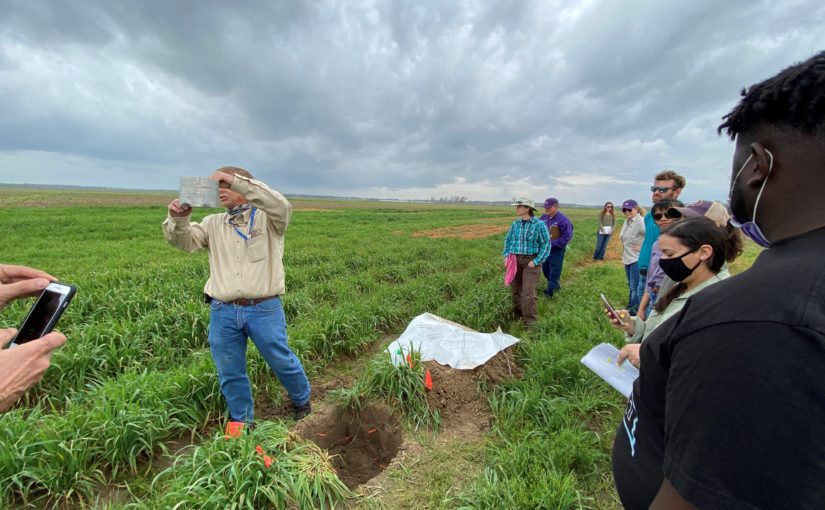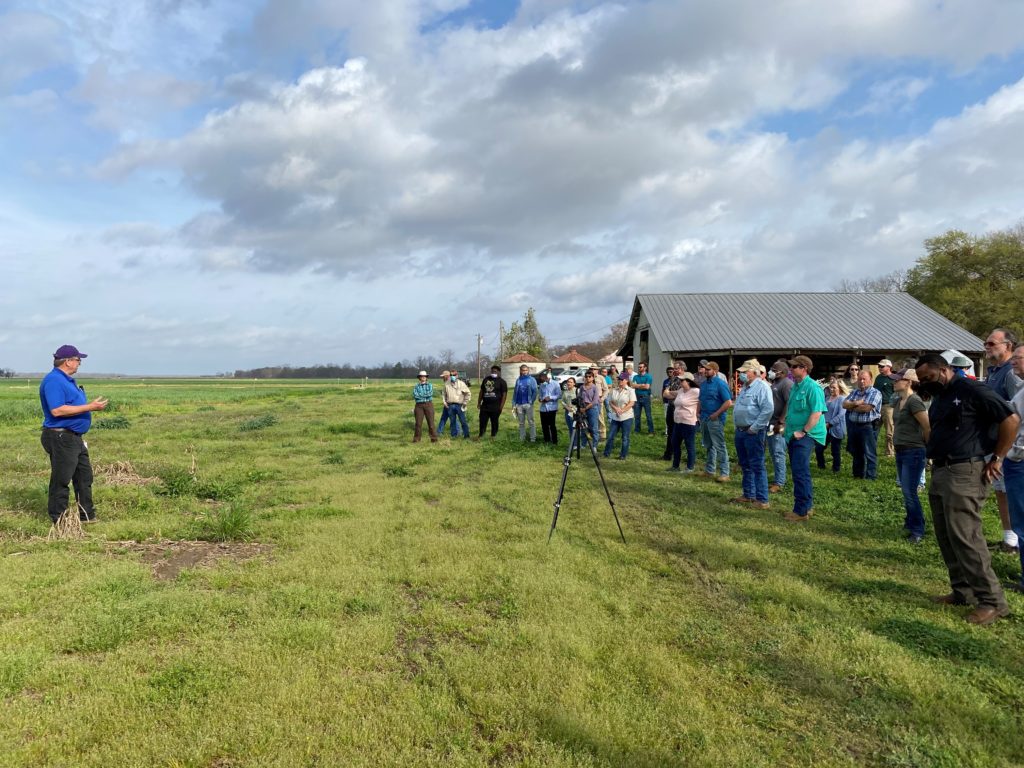Apr 16, 2021Louisiana State University AgCenter forum focuses on healthy soil
The soil that supports crops and lies beneath our feet was the main topic of a soil health forum held at the Louisiana State University AgCenter Northeast Research Station March 17.
The forum was supported by the Patrick F. Taylor Foundation and Natural Resources Conservation Service. The foundation awarded a grant to the LSU AgCenter to fund a four-year research project on reducing nutrient runoff from crop fields.
Field days and forums are a vital component of the success of ongoing research, said Lisa Fultz, LSU AgCenter soil microbiologist.
“The field days are meant to provide information that farmers will use for decision making when they are developing plans for production,” Fultz said. “The field walks in particular provide real-world or research demonstrations of the practices we’re talking about and give everyone an opportunity to see, touch and feel these practices in real time.”


Conservation-based field days are important, Fultz added, because they increase exposure to practices that in some cases have been around for a long time but are not commonly implemented in today’s production systems.
“Some practices, like cover crops, were used extensively until the 1950s, so much of the knowledge regarding their use may not apply to production systems of today,” she said. “The changes in agricultural practices have necessitated the adaptation and development of conservation practices that embrace the development of new cultivars and technologies like variable rate applications to develop robust systems.”
The event highlighted soil health and included a variety of topics. In recent years, there has been a push from society for more sustainable practices, said Dennis Burns, an AgCenter agent and research coordinator at the Northeast Research Station near St. Joseph.
“Conservation practices will become more important as part of participating in USDA farm programs,” Burns said. “Society is wanting more sustainable practices, and this will put pressure on markets and, ultimately, producers.”
Best management practices come in a variety of forms, many of which producers in Louisiana are already implementing. The ultimate outcome from the perspective of Fultz and other researchers is to reduce soil, nutrient and chemical losses to waterways – whether they are local lakes, streams and bayous, or farther away, like the Gulf of Mexico.
“One of the inherent ideas driving soil health is the ability of soil to continue to function as a vital living ecosystem to sustain plants, animals and humans,” Fultz said. “By promoting and preserving healthy soils we ensure their ability to sustain production for future generations to continue to provide food and fiber to a growing population.”
Photo at top: Wink Alison, LSU AgCenter agronomist, presents perspectives on soil health in animal production.















